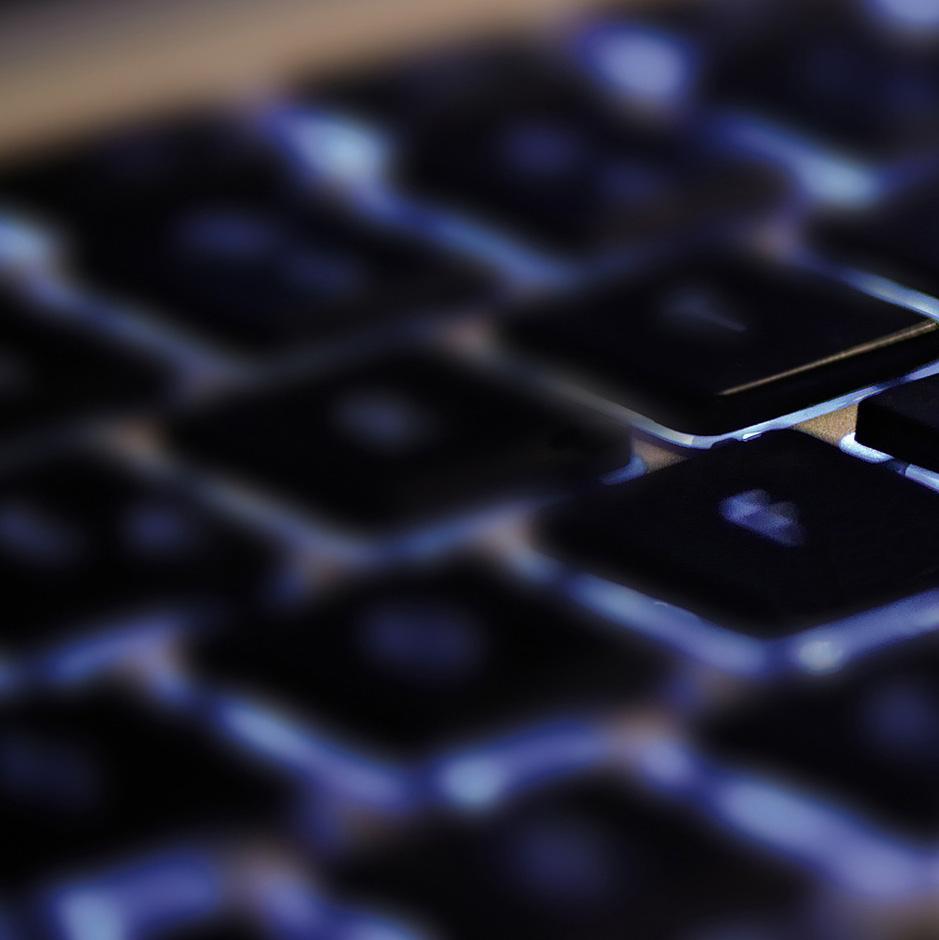
4 minute read
Q&A: 2020 AND AN INCREASE IN CYBER VULNERABILITIES
Last month, Counter Terror Business (CTB) caught up with Roderick Jones (RJ), executive chairman at Concentric Advisors and former member of Scotland Yard’s Special Branch, to discuss all things cyber security, coronavirus and the recent US Election.
CTB: Cyber security has become one of the leading global considerations for the coronavirus crisis. In light of this, how important is it that organisations remain aware of the inevitable vulnerabilities that come from this?
RJ: Most organisations in the world had to rapidly stand up a remote IT infrastructures in response to the Covid crisis. For the most part this worked very well as people moved over to video conferencing and other mediums to manage their work. However, much of this infrastructure has been pieced together in a way, which potentially leaves it vulnerable to exploitation by hackers. The cyber security industry is responding to the new needs thrown up by remote working by these solutions will take time to fully get into market. Increased digital insecurity is likely to be a significant legacy of the covid crisis and a continued unwelcome cost on organisations seeking to repair the economic damage they’ve endured.

CTB: It would seem likely that, even if a vaccine is available soon, remote working will be an increasing trend in 2021 and beyond. What role does device-layer cyber security have in mitigating this threat?
RJ: The volume of traffic a personal device is expected to manage now is greater than before. Work, School, Food ordering, social life, gaming are often all managed from the same device. That opens up an enormous new level of threat to most organisations and there isn’t as yet an easy to use cyber security product, which provides advanced security for your device. There are a number of enterprise solutions and significant activity in that space but these solutions will not reach the majority of the public due to the way cyber security is deployed for consumers.
CTB: When we spoke to you in September 2017, you said that terrorism had almost wholly virtualised in the period from when you were in Scotland Yard’s Special Branch to then. With many countries now experiencing their second form of lockdown, how has the digital threat evolved again?
RJ: One significant evolution in the digital threat has been the rise and impact of disinformation. So while threats to information remain, threats through information have been seen to have increasing impact. The functioning of a democracy relies on an agreement about the facts being debated. When you have a situation when society has become so vulnerable to disinformation that basic assumptions about whether the world is flat or round are being challenged there is a real problem. Arguably the lockdown combined with the power of disinformation has brought previously fringe domestic extremists back into a functioning form of popularity, which in turn has changed the nature of the terrorist threat for the first time since 2001.
CTB: In an age of misinformation and wide-ranging access, how can consumers maintain a cautious eye towards manipulation and cyber attack opportunities?
RJ: Fortunately, the dangers of misinformation are top of mind for a number of government and tech leaders. The labelling of misinformation was an important step to take and I’m sure there will be a number of policy changes attempted and suggested to re-introduce the editorial function into the media we consume.
CTB: Lastly, the recent US election. The digital integrity of the US Presidential election took on new heights in November. What steps can the United States take to rebuild public trust in the electoral process, and, more importantly, ensure that its digital systems cannot be easily manipulated by foreign interference, disinformation and misinformation? RJ: It would appear the establishment of CISA had an enormous effect on the security of the election and successfully did the job it was designed to do. There seems to be little factual reason to distrust the electoral process in the United States. President Trump notably questioned the integrity of the election he won in 2016 and the one he lost in 2020.
At the same time CISA was established under his administration to defend the digital integrity of US elections, which it did. The damage being done to public trust in the US election system is all driven from within the country and mainly by elected officials making unsubstantiated claims about the system. Foreign adversaries of the USA may seek to amplify some of this language to further damage the USA but frankly, that their job is being done for them from within the country. L Roderick Jones has over 15 years of experience operating at the highest levels of the international security environment. During his time as a member of Scotland Yard’s Special Branch, Roderick focused on international terrorism and the protection of a prominent British cabinet member.
FURTHER INFORMATION
www.concentricadvisors.com








